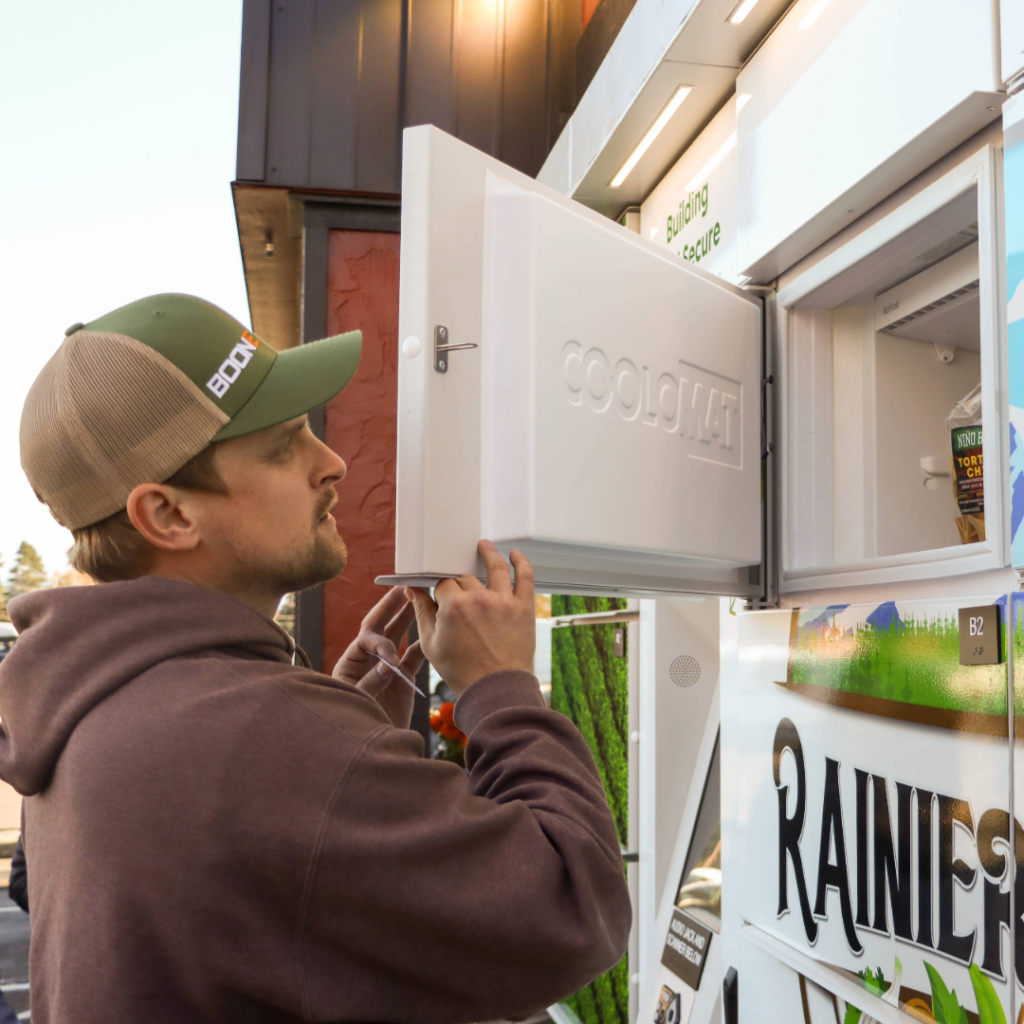How Innovative Food Lockers Are Filling a Critical Need in Pierce County
By Bryan Dominique
Office of the Pierce County Council

Pierce County isn’t well known for its desert landscapes, but there is a different kind of desert that casts a long shadow over rural communities throughout the County. It’s the infamous “food desert.”
Food deserts are communities – especially those with limited transportation options – struggling to access nutritious food consistently.
“The GoodRoots locker network is a solution for food deserts and food waste in what is fundamentally a broken food system,” says Stacey Crnich, CEO of GoodRoots NW. “Food scarcity is not the issue—it’s a logistics issue. By leveraging climate-controlled lockers and vehicles that monitor temperatures, we can ensure that food stays fresh longer and gets to the people who need it most. Through innovation, we can ensure food doesn’t fall through the cracks of an inefficient supply chain.”
In 2022, GoodRoots NW launched a Locker Pilot Program to meet this need by providing a space where people can pick up their food orders 24 hours a day. Customers order food through the GoodRoots website using their personal membership number. After placing an order and selecting the nearest locker location, customers are alerted via text message when their order is ready for pickup.
There are currently five East Pierce locker locations, with two more going live by year’s end.
“GoodRoots locker network also helps bridge the gap left by foodbanks with limited hours. A single parent who works doesn’t have the luxury to leave work at 2 in the afternoon to go to the food bank. The elderly neighbor who can’t drive or guarantee transportation at 2 p.m. now has options.” says Crnich.
As of Wednesday, Nov. 6, they can also pick up orders from the Rainier Fresh Country Store locker site, a small local grocery store in Buckley, Washington. In a community-centered move, the organization installed a GoodRoots Food Locker in front of the Rainier Fresh Country Store, an initiative made possible through a unique partnership with the Brown family, owners of the store.
“I don’t see this as a risk,” says Patrick Brown, owner of Rainier Fresh Country Store, about placing a free food locker in front of his establishment. “GoodRoots Northwest has a wide distribution, but not always deep. We have a deep distribution, but not always wide. With this, someone can order free food resources through GoodRoots and then come into our store and shop for items that weren’t available. It gives our neighbors options, and I’m happy to support it.”
Currently, GoodRoots NW serves around 758 Buckley households weekly. This new locker site provides a convenient option for those most vulnerable in the community who lack consistent transportation or need after-hours pickup. The nonprofit and the Brown family hope to foster greater resilience in Buckley and surrounding areas by offering an alternative that integrates directly with local infrastructure.
“The partnership between GoodRoots Northwest, Rainier Fresh Country Store, and other local supporters is an example of how diverse groups can unite to create solutions that are scalable and sustainable,” says Dave Morell, Pierce County Councilmember for District 1, which includes Buckley and several small towns that are in food deserts. “By drawing on each partner’s expertise, resources, and networks, they can broaden their reach and establish trust within the community. This collective strength also means they can respond more effectively to emergencies or changing needs within the community.”
Morell was an early proponent of the Food Locker Program, helping to secure $174,000 in grant funding from the Council to get the pilot off the ground.
“The multi-sector approach is essential to creating resilient systems that endure over time,” says Crnich. “When public, private, and nonprofit groups work together, they can support the community in ways none of us could achieve alone.”